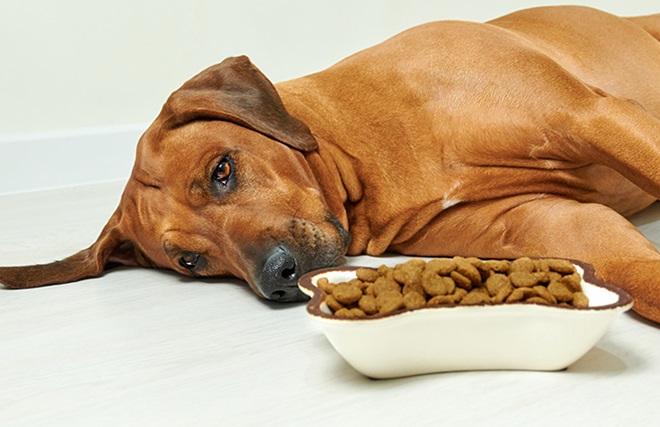Need to know
- Unlike countries including Japan and New Zealand, Australia’s pet food safety regulations are voluntary and overseen by the industry itself
- The Australian Veterinary Association, the RSPCA and the Pet Food Industry Association of Australia have joined together in a call for change
- CHOICE has investigated a number of pet food contamination cases that have left pet owners devastated – we’ve been calling for mandatory standards since 2018
CHOICE will be sending an open letter to Minister for Agriculture David Littleproud next week calling for the long-overdue establishment of mandatory pet food safety standards in Australia. We're urging consumers to sign the letter now and let government know the time has come to better protect our pets.
The move follows the latest pet food contamination incident earlier this month, in which 23 dogs in Victoria reportedly died and 67 were hospitalised due to indospicine poisoning traced to contaminated horse meat from the Northern Territory.
The incident led the Australian Veterinary Association, the RSPCA and the Pet Food Industry Association of Australia (PFIAA) to join forces in a call to end "the significant delays in developing and implementing robust pet food regulation".
Our pets are our family and, just like when we buy food for our loved ones at the supermarket, we expect some level of safety and quality control with pet food
CHOICE consumer advocate Jonathan Brown
A mandatory standard for pet food safety was recommended by a Senate inquiry in October 2018. But that recommendation along with other key safety provisions was rejected in the final report of a working group headed up by Littleproud released earlier this year.
"Our pets are our family and, just like when we buy food for our loved ones at the supermarket, we expect some level of safety and quality control with pet food," says CHOICE consumer advocate Jonathan Brown.
"CHOICE has heard too many devastating stories from people whose pets have been harmed by unsafe food. We need stronger standards and checks on pet food and, with the support of industry, experts, advocates and pet lovers, this should be a no-brainer for the government to implement."
CHOICE is delivering an open letter to the government calling for a mandatory pet food safety standard. Add your name now.

Cases of pets falling ill after eating contaminated pet food have a long history in Australia.
'Robust and enforceable systems'
"Australians should be able to buy food for their pets knowing there are robust and enforceable systems in place to help prevent unsafe pet food being produced and sold, and ensure there is a standard recall process across the industry to guarantee a prompt and effective response if a problem is identified," says RSPCA Australia senior scientific officer for companion animals Dr Sarah Zito.
Zito says a mandatory standard is needed "to guarantee that pet food meets a high standard of food safety and traceability, to prevent potential contaminants and toxins from entering pet food, and to ensure that there is a mandatory recall process to prevent further illnesses and deaths if a problem occurs".
Australians should be able to buy food for their pets knowing there are robust and enforceable systems in place to help prevent unsafe pet food being produced and sold
RSPCA senior scientific officer Dr Sarah Zito
In February this year, PFIAA president Michelle Lang told CHOICE: "We support the Australian standard becoming mandatory, and a framework that enables the enforcement of recalls by an independent regulator where quality or safety issues exist."
"The AVA has consistently and strongly argued for a mandatory Australian pet food standard and an ongoing process of review and modification with clear guidelines for product recall," head of policy and advocacy Dr Melanie Latter told us in February.
Multiple contamination cases
CHOICE has been calling for mandatory standards since 2018 and has investigated a number of pet food contamination cases.
In June 2021, we profiled the case of Lynne Moorman, whose seven cats fell seriously ill after eating Royal Canin cat kibble.
In an earlier story this year, we highlighted the case of Rebecca Cleaver's two greyhounds being diagnosed with megaesophagus after eating Veganpet dry dog food.
In a 2018 investigation, we focused on the case of Nina Waltman, who's convinced Royal Canin dry dog food made her Maltese Shih Tzu sick.
We're on your side
For more than 60 years, we've been making a difference for Australian consumers. In that time, we've never taken ads or sponsorship.
Instead we're funded by members who value expert reviews and independent product testing.
With no self-interest behind our advice, you don't just buy smarter, you get the answers that you need.
You know without hesitation what's safe for you and your family. And our recent sunscreens test showed just how important it is to keep business claims in check.
So you'll never be alone when something goes wrong or a business treats you unfairly.
Learn more about CHOICE membership today
Stock images: Getty, unless otherwise stated.



